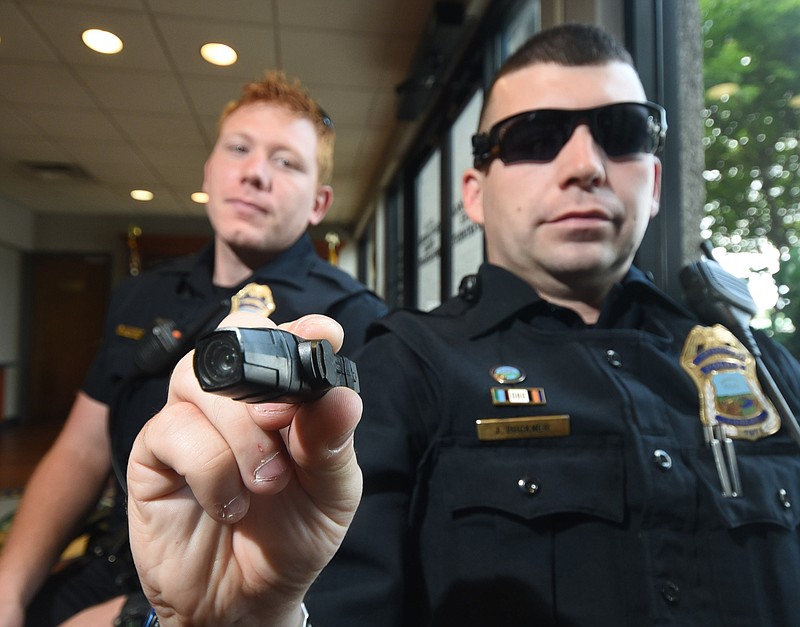The Chattanooga Police Department on Tuesday moved one step closer to putting body cameras on all officers.
City Council members voted 9-0 to give police Chief Fred Fletcher the power to enter into a five-year contract with a private equipment company, Taser International, to provide the body cameras and storage.
Funding for the $2.2 million contract had already been budgeted by the council, and the police department will also receive a $300,000 grant from the U.S. Department of Justice that will be put toward the overall cost.
Councilman Chip Henderson, who serves as the chairman of the council's Public Safety Committee, praised the deal and Fletcher's work to build a policy to go hand-in-hand with the body camera deployment.
"I think it's something that's going to be beneficial not only to our police department, but also to our citizens," Henderson said.
Council Chairman Moses Freeman called it "a milestone for our city."
Fletcher told council members he expects to deploy body cameras across the department by the end of the first quarter of 2017. The contract with Taser International would end in Dec. 2021.
"The two big hurdles now are finalizing the contract and building out minor tech space for the docking and storage," Fletcher said.
He also gave council members a draft of the department's proposed policy that will guide the use of the body cameras. The policy sets forth when officers should and should not record, how long the video will be retained, who can access and view the video and the discipline officers will face if they violate the policy.
The draft has not been finalized, Fletcher said. Officials with the Department of Justice will review the policy and ensure it meets their standards before giving police the $300,000 grant.
As it stands now, the proposed policy requires officers to record any time they arrive on scene for a call, whenever they attempt to arrest or detain someone or are likely to, whenever they interact with a member of the public for a law enforcement purpose, anytime they believe recording is in the best interest of the community, and during any investigative stop involving the public.
It also generally forbids officers from recording inside health care facilities, while on break, while in the presence of confidential informants or undercover officers, and in a handful of other situations. It gives officers the discretion to, in rare circumstances, turn off their cameras in order to interview a victim or informant.
Councilman Moses Freeman said he was impressed with the details in the policy, particularly the sections that addressed when officers should not record.
"That part showed that there was a lot of care there to protect people's privacy," he said.
Staff writer Paul Leach contributed to this story.
Contact staff writer Shelly Bradbury at 423-757-6525 or sbradbury@timesfreepress.com with tips or story ideas. Follow her on Twitter @ShellyBradbury.
